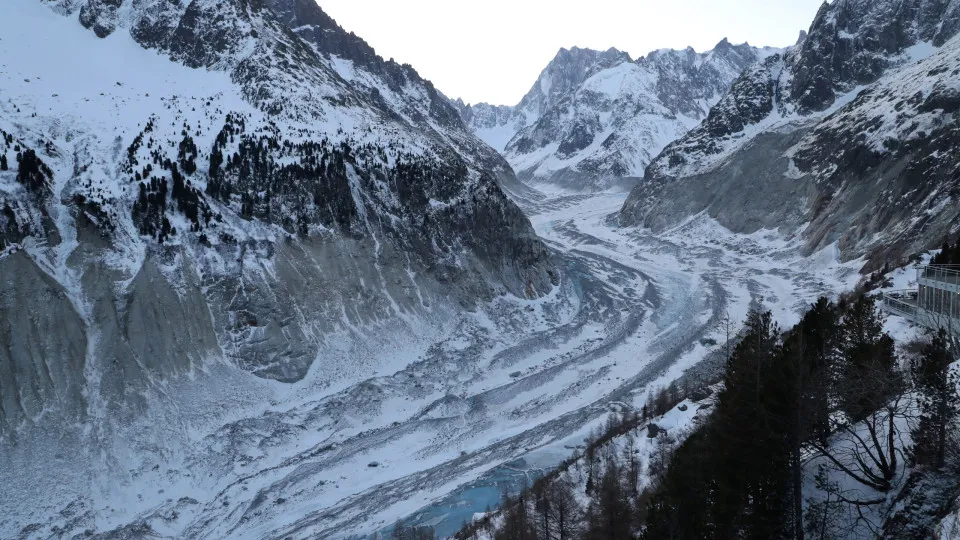Alpine glaciers have lost 10% of their volume in the last two years
The glaciers of the Alps have lost 10% of their volume in the last two years, due to low accumulation of ice in the winter and strong melting in the summer, according to the "State of the European Climate 2022" report released today.

© Lusa

Mundo Alpes
According to the document from the European Copernicus Climate Change Service (C3S) and the World Meteorological Organization (WMO), since the mid-19th century, glaciers around the world have been losing volume and the European Alps are one of the regions that is losing the most ice.
"In 2023, glaciers in all European regions experienced a net loss of ice. After a record loss of ice in 2022, this was another exceptional year of loss in the Alps, due to a below-average winter accumulation and a strong melt in summer. Over these two years, the glaciers in the Alps have lost about 10% of their volume", the report states.
The European continent is the one that is warming the fastest, with temperatures rising at about twice the global average, highlight the WMO and C3S, which also indicate that, since the 1990s, the Arctic has been warming "at a much faster rate than the global average".
For the Arctic land areas, 2023 was the fifth warmest year on record. The five warmest years in the Arctic lands have all occurred since 2016.
The Norwegian archipelago of Svalbard, in the Arctic, is one of the places that has been registering the fastest warming on the planet.
Last year, the average summer temperature was the highest on record, due, in part, to below-average sea ice formation and above-average sea surface temperatures.
The report claims that in Greenland, for example, below-average temperatures in May and June delayed the onset of the ice sheet melt season, but heatwaves in July and August led to substantial summer melt and an above-average annual ice loss.
The highest-ever average sea surface temperature was also recorded in Europe.
In June, the area of the Atlantic Ocean west of Ireland and around the United Kingdom reported a marine heatwave classified as "extreme" and, in some areas, as "more than extreme", with sea surface temperatures up to 5ºC above average.
The document also states that overall precipitation in Europe was about 7% above average, with river flows in December being the highest on record. In almost a quarter of the river network, flows were "exceptionally high".
A third of the European river network registered flows above the "high" flood threshold and 16% exceeded the "severe" flood threshold.
Read Also: Five of the six missing climbers in the Alps found dead (Portuguese version)

Descarregue a nossa App gratuita.
Oitavo ano consecutivo Escolha do Consumidor para Imprensa Online e eleito o produto do ano 2024.
* Estudo da e Netsonda, nov. e dez. 2023 produtodoano- pt.com



